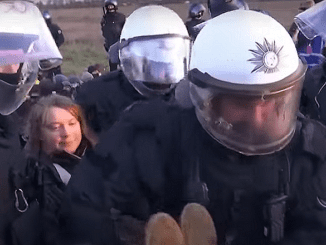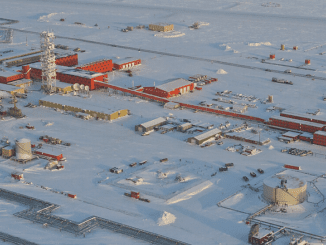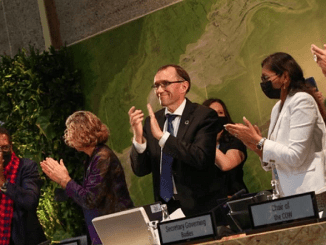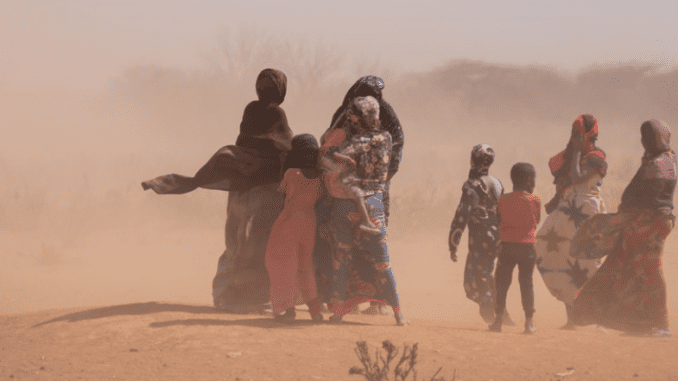
BERLIN, Germany, March 1, 2022 (ENS) – “Today’s IPCC report is an atlas of human suffering and a damning indictment of failed climate leadership,” declared UN Secretary-General Antonio Guterres after reading the latest from the agency charged with compiling climate reports to advise the United Nations – the Intergovernmental Panel on Climate Change.
“With fact upon fact, this report reveals how people and the planet are getting clobbered by climate change,” Guterres lamented.
“Nearly half of humanity is living in the danger zone – now,” he warned. “Many ecosystems are at the point of no return – now. Unchecked carbon pollution is forcing the world’s most vulnerable on a frog march to destruction – now.”
“The facts are undeniable. This abdication of leadership is criminal. The world’s biggest polluters are guilty of arson of our only home,” the UN chief alleged.
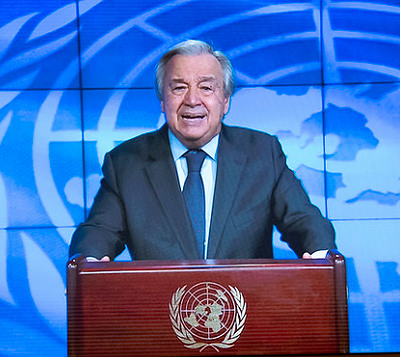
He said it is “essential to meet the goal of limiting global temperature rise to 1.5 degrees” as set forth in the Paris Agreement approved by 195 nations in 2015.
“Science tells us that will require the world to cut emissions by 45 percent by 2030 and achieve net zero emissions by 2050,” Guterres said. “But according to current commitments, global emissions are set to increase almost 14 percent over the current decade. That spells catastrophe!” Guterres stressed.
The findings of the hundreds of authors of this report are startling. Here are just a few. In parentheses are the authors’ comments on their state of confidence in the findings. The entire report was approved by all 195 IPCC nations after a two-week line-by-line review.
“Climate change has caused substantial damages, and increasingly irreversible losses, in terrestrial, freshwater and coastal and open ocean marine ecosystems (high confidence). The extent and magnitude of climate change impacts are larger than estimated in previous assessments (high confidence).”
“Widespread deterioration of ecosystem structure and function, resilience and natural adaptive capacity, as well as shifts in seasonal timing have occurred due to climate change (high confidence), with adverse socioeconomic consequences (high confidence).”
“Approximately half of the species assessed globally have shifted polewards or, on land, also to higher elevations (very high confidence).”
“Hundreds of local losses of species have been driven by increases in the magnitude of heat extremes (high confidence), as well as mass mortality events on land and in the ocean (very high confidence) and loss of kelp forests (high confidence).”
“Some losses are already irreversible, such as the first species extinctions driven by climate change (medium confidence).
“Other impacts are approaching irreversibility such as the impacts of hydrological changes resulting from the retreat of glaciers, or the changes in some mountain (medium confidence) and Arctic ecosystems driven by permafrost thaw (high confidence).”
IPCC Chairman Hoesung Lee said, “This report is a dire warning about the consequences of inaction. It shows that climate change is a grave and mounting threat to our wellbeing and a healthy planet. Our actions today will shape how people adapt and nature responds to increasing climate risks. Half measures are no longer an option.”
According to the report, human-induced climate change is causing dangerous and widespread disruption in nature and affecting billions of lives all over the world, despite efforts to reduce the risks, with people and ecosystems least able to cope being hardest hit.
“The scientific evidence is unequivocal: climate change is a threat to human wellbeing and the health of the planet. Any further delay in concerted global action will miss a brief and rapidly closing window to secure a liveable future,” said Hans-Otto Pörtner, a marine ecophysiologist at the Alfred Wegener Institute Helmholtz Centre for Polar and Marine Research in Bremerhaven, Germany. He is a member of the European Academy of Sciences and the German Advisory Council on Global Change.
Overview of the IPCC Reports
The report released Monday is part of a larger set of climate reports. It is the contribution of Working Group II – with its focus on the impacts, adaptation and vulnerabilities related to climate change – to the IPCC’s Sixth Assessment Report.
The IPCC, formally known as the Intergovernmental Panel on Climate Change, was established by the United Nations Environment Programme and the World Meteorological Organization in 1988. Since then, the IPCC has had five assessment cycles and delivered five Assessment Reports based on the work of thousands of scientists – the most comprehensive scientific reports about climate change ever produced.
The IPCC issued its Fifth Assessment Report in 2014, and now is in its Sixth Assessment Cycle.
In its Sixth Assessment cycle the IPCC will produce the Assessment reports of its three Working Groups, three Special Reports, a refinement to the methodology report and the Synthesis Report. The Synthesis Report will be the last of the AR6 products, due for release in 2022.
“The Sixth Assessment Report will update our knowledge on climate change, its impacts and risks, and possible response options, and play an important role in implementing the Paris Agreement,” said IPCC Chair Lee.
Working Group II’s contribution to the Sixth Assessment Report draws from 34,000 studies and involved 270 authors from 67 countries in a comprehensive examination of the intensifying impacts of climate change and future risks, particularly for resource-poor countries and marginalized communities.
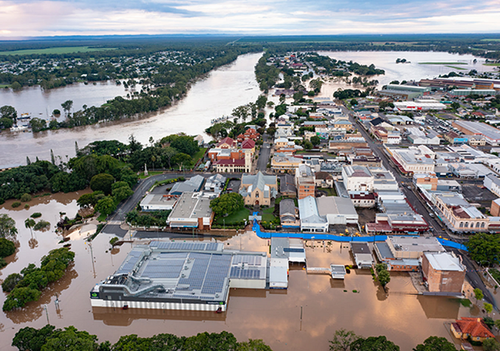
It details which groups of people and ecosystems are most vulnerable, and which climate adaptation approaches are most effective and feasible
The Summary for Policymakers of the IPCC Working Group II report, “Climate Change 2022: Impacts, Adaptation and Vulnerability” was approved on February 27 by the 195 member governments of the IPCC, through a virtual approval session that was held over two weeks starting on February 14.
IPCC Working Group II Co-Chair Pörtner sees hope in conservation and restoration. “Healthy ecosystems are more resilient to climate change and provide life-critical services such as food and clean water,” he said Monday.
“By restoring degraded ecosystems and effectively and equitably conserving 30 to 50 percent of Earth’s land, freshwater and ocean habitats, society can benefit from nature’s capacity to absorb and store carbon, and we can accelerate progress towards sustainable development, but adequate finance and political support are essential,” said Pörtner.
The scientists recognize that climate change interacts with global trends such as unsustainable use of natural resources, growing urbanization, social inequalities, losses and damages from extreme events and a pandemic, complicating recovery.
IPCC Working Group II Co-Chair Debra Roberts says there is hope in risk reduction as long as everyone plays a part.
“Our assessment clearly shows that tackling all these different challenges involves everyone – governments, the private sector, civil society – working together to prioritize risk reduction, as well as equity and justice, in decision-making and investment,” said Professor Roberts.
Roberts holds a PhD in urban biogeography and is currently head of the Sustainable and Resilient City Initiatives Unit in eThekwini Municipality, Durban, South Africa. In 2019 she was included in a list of the World’s 100 Most Influential People in Climate Policy.
“Together, growing urbanization and climate change create complex risks, especially for those cities that already experience poorly planned urban growth, high levels of poverty and unemployment, and a lack of basic services,” Roberts said.
“But cities also provide opportunities for climate action,” she said. “Green buildings, reliable supplies of clean water and renewable energy, and sustainable transport systems that connect urban and rural areas can all lead to a more inclusive, fairer society.”
Featured image: Women and children walk past animal carcasses through wind-blown dust in Ethiopia. Cows, sheep, goats, camels, and donkeys are dying as severe drought hits the region. Children and their families struggle to survive due to loss of livelihoods and exhausting coping mechanisms. January 21, 2022, Sagalo village, Somali region, Ethiopia. (Photo by Mulugeta Ayene courtesy UNICEF Ethiopia)

